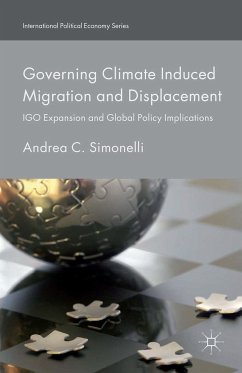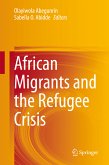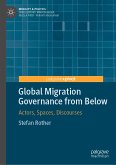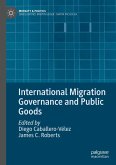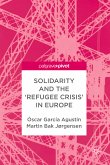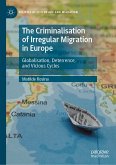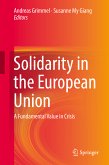'This book recasts with brio the IOM's transformation. The result is impressive and thought-provoking.'
-Didier Bigo, Professor of Sociology, Sciences Po Paris, France
'Rich case studies show the interplay between the IOM's soft power and its tendency to serve the will of powerful patrons. For an inside view of a process that continues to unfold, look no further than this volume.'
-David Scott FitzGerald, Gildred Chair in U.S.-Mexican Relations and Co-Director, Center for Comparative Immigration Studies, University of California San Diego, USA
'A much needed and timely book. This book critically investigates the new role of the IOM as the UN agency responsible for managing people flows and borders.'
-Anna Triandafyllidou, Canada Excellence Research Chair in Migration and Integration, Ryerson University Toronto, Canada
'The most up-to-date and encompassing research on the IOM. A must-read for those who are interested in migration and mobility studies, and the increasing role of the IOM in migration politics.'
-Zhenjiang Zhang, Professor and Dean, School of International Studies and Academy of Overseas Chinese Studies, Jinan University Guangzhou, China
In 2016, the International Organization for Migration (IOM) became part of the United Nations. With 173 member states and more than 400 field offices, the IOM-the new 'UN migration agency'-plays a key role in migration governance. The contributors in this volume provide an in-depth and comprehensive insight into the IOM, its transformation, current structure and projects, as well as its capacity, self-understanding and political agenda.
Martin Geiger is Associate Professor of Politics of Human Migration and Mobility at Carleton University, Canada, Senior Research Fellow at the Center for China and Globalization in Beijing, and Corresponding Member of the Institute for Migration Research and Intercultural Studies in Osnabrueck, Germany.
Antoine Pécoud is Professor of Sociology at the University of Paris 13, a Research Associate at CERI/Sciences Po, and a Fellow of the Institut des Migrations, France.
Dieser Download kann aus rechtlichen Gründen nur mit Rechnungsadresse in A, B, BG, CY, CZ, D, DK, EW, E, FIN, F, GR, HR, H, IRL, I, LT, L, LR, M, NL, PL, P, R, S, SLO, SK ausgeliefert werden.



